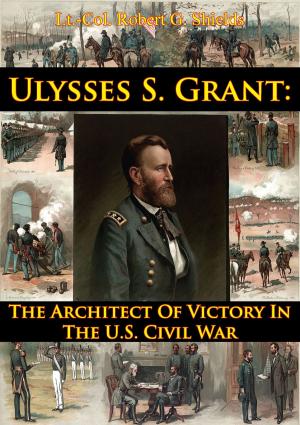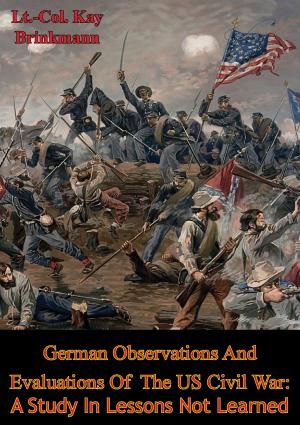Major General Philip H. Sheridan And The Employment Of His Division During The Battle Of Chickamauga
Nonfiction, History, Modern, 19th Century, Americas, United States, Civil War Period (1850-1877), Military| Author: | Major Paul S. Sarat Jr. | ISBN: | 9781786253842 |
| Publisher: | Golden Springs Publishing | Publication: | November 6, 2015 |
| Imprint: | Golden Springs Publishing | Language: | English |
| Author: | Major Paul S. Sarat Jr. |
| ISBN: | 9781786253842 |
| Publisher: | Golden Springs Publishing |
| Publication: | November 6, 2015 |
| Imprint: | Golden Springs Publishing |
| Language: | English |
This thesis is a historical analysis of Major General Philip H. Sheridan and his division during the Battle of Chickamauga. Sheridan led an experienced division onto the battlefield on 19 September 1863 after completing a march of over one hundred miles over mountainous terrain the previous seventeen days. The division was deployed by brigade to protect the Union right flank. One brigade took heavy casualties the first day, when attacking to repel an enemy advance. On the second day, while moving to reinforce Major General Thomas’ corps, the division was routed when Confederate forces attacked through a gap in the Union defense. Sheridan rallied his men, but inexplicably left the battlefield instead of returning to reinforce Thomas’ right flank as ordered. Sheridan later moved to reinforce Thomas’ left flank, after the battle was over.
Sheridan’s performance was uncharacteristic for him, particularly his decision to leave the battlefield. Sheridan was not the subject of an official inquiry after the battle, although his actions were similar to other officers who were. Based on the analysis of the division’s actions, this study draws conclusions to determine the causes for the unit’s poor performance at Chickamauga: poor decision making, fatigue, and piecemeal employment.
This thesis is a historical analysis of Major General Philip H. Sheridan and his division during the Battle of Chickamauga. Sheridan led an experienced division onto the battlefield on 19 September 1863 after completing a march of over one hundred miles over mountainous terrain the previous seventeen days. The division was deployed by brigade to protect the Union right flank. One brigade took heavy casualties the first day, when attacking to repel an enemy advance. On the second day, while moving to reinforce Major General Thomas’ corps, the division was routed when Confederate forces attacked through a gap in the Union defense. Sheridan rallied his men, but inexplicably left the battlefield instead of returning to reinforce Thomas’ right flank as ordered. Sheridan later moved to reinforce Thomas’ left flank, after the battle was over.
Sheridan’s performance was uncharacteristic for him, particularly his decision to leave the battlefield. Sheridan was not the subject of an official inquiry after the battle, although his actions were similar to other officers who were. Based on the analysis of the division’s actions, this study draws conclusions to determine the causes for the unit’s poor performance at Chickamauga: poor decision making, fatigue, and piecemeal employment.


![Cover of the book Forty-Six Years In The Army [Illustrated Edition] by Major Paul S. Sarat Jr.](https://www.kuoky.com/images/2015/november/300x300/9781786251350-EhDW_300x.jpg)

![Cover of the book The Chancellorsville Campaign, January-May 1863 [Illustrated Edition] by Major Paul S. Sarat Jr.](https://www.kuoky.com/images/2015/november/300x300/9781786254405-4yNI_300x.jpg)


![Cover of the book Four Years Under Marse Robert [Illustrated Edition] by Major Paul S. Sarat Jr.](https://www.kuoky.com/images/2015/november/300x300/9781786251169-Rry8_300x.jpg)



![Cover of the book Elmer Wheeler’s Tested Public Speaking [Second Edition] by Major Paul S. Sarat Jr.](https://www.kuoky.com/images/2016/october/300x300/9781787201477-wpuf_300x.jpg)


![Cover of the book With General Sheridan In Lee's Last Campaign [Illustrated Edition] by Major Paul S. Sarat Jr.](https://www.kuoky.com/images/2014/august/300x300/9781782895367-68S6_300x.jpg)
